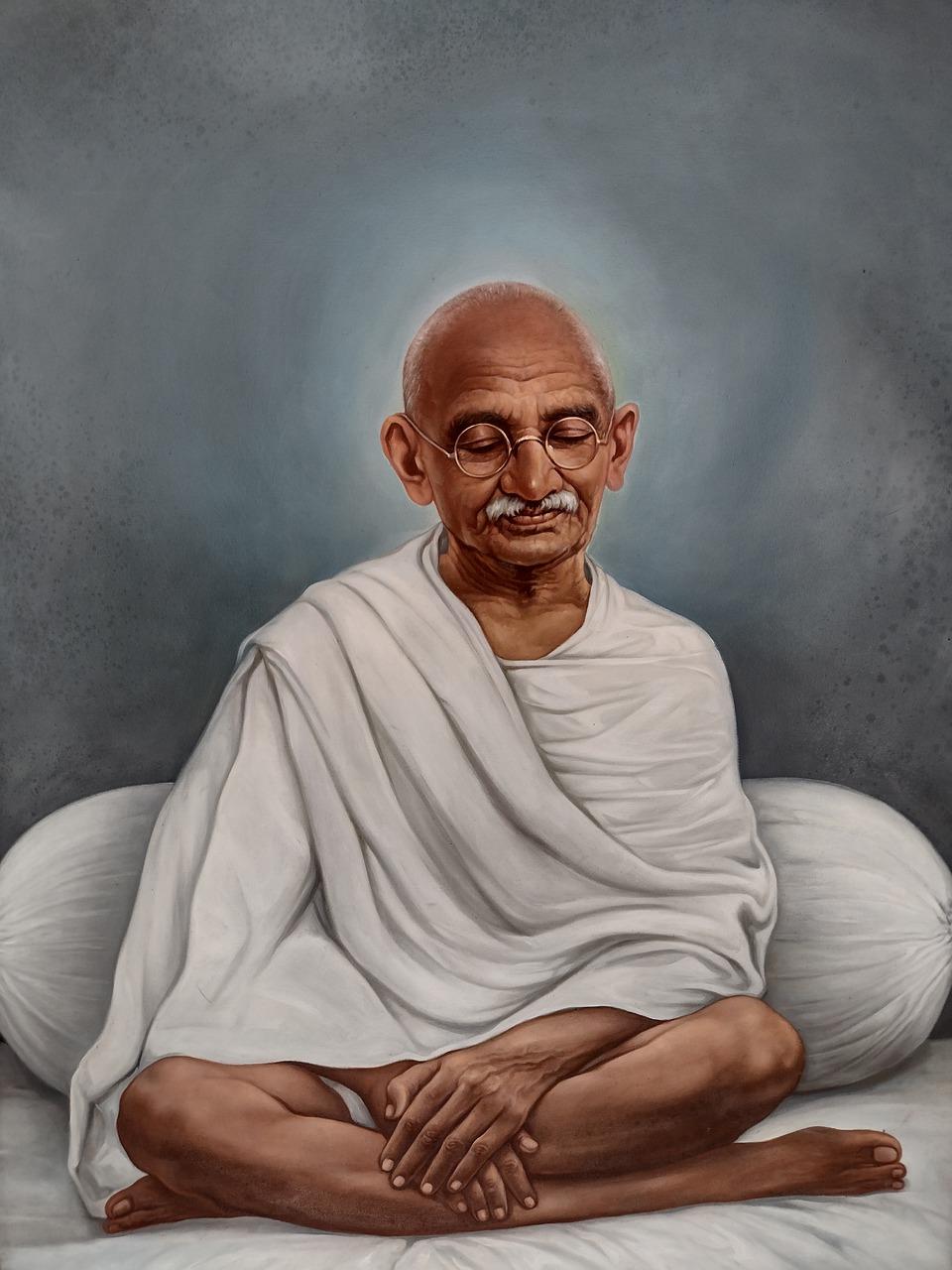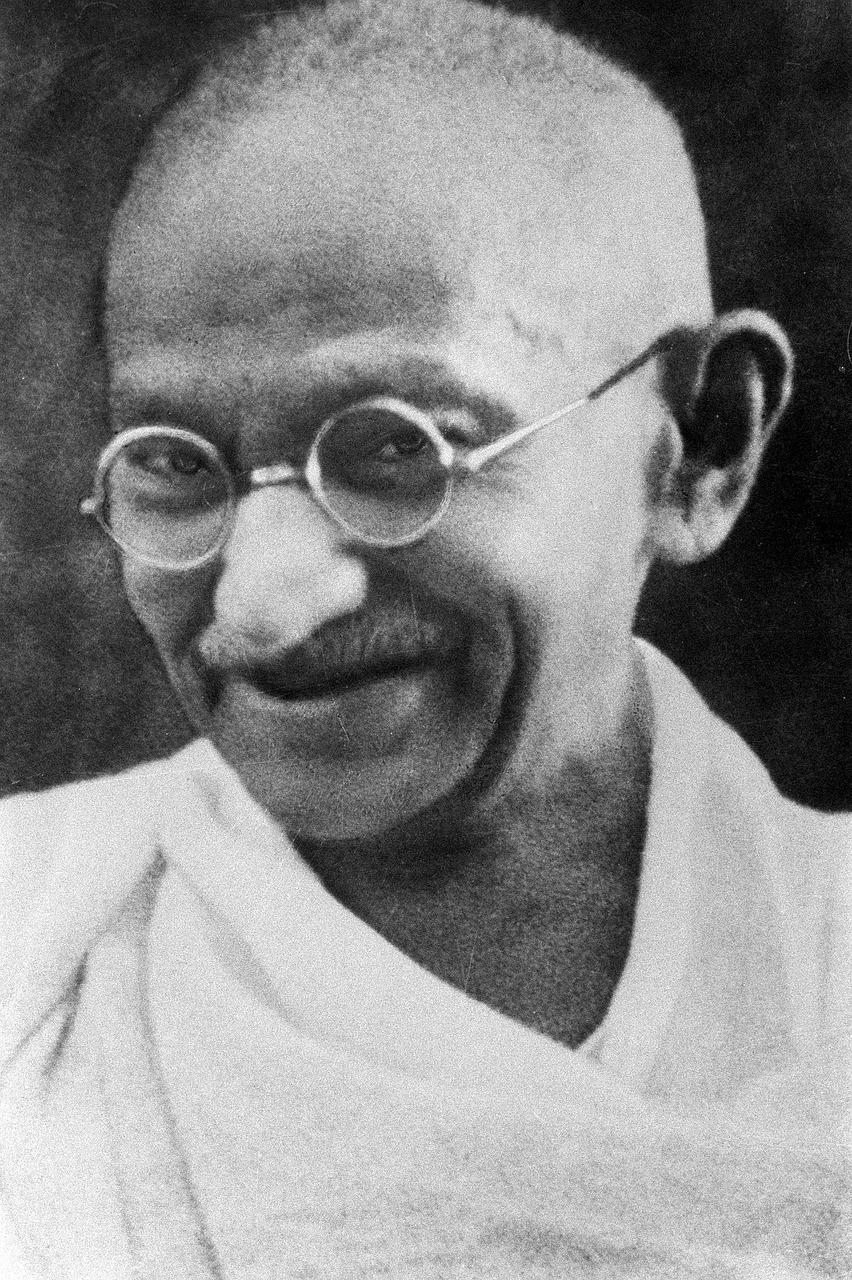Mahatma Gandhi, one of the most remarkable figures in history, was not just a man but an ideology in himself. Born in 1869, in Porbandar, India, Gandhi dedicated his life to fighting for justice, peace, and equality. His principles and teachings continue to inspire millions of individuals today.
Gandhi believed in the power of nonviolence, famously known as Ahimsa, as a means to bring about social and political change. His philosophy emphasized the importance of compassion, harmony, and respect for all living beings. Gandhi’s unique characteristics included his simplicity, humility, and relentless pursuit of truth.
In addition to his ideology of nonviolence, Gandhi was a strong advocate for basic education and equity. He believed that education should not only be accessible to all but should also focus on moral values and practical skills. According to Gandhi, education should empower individuals and contribute to the overall development of society.
In this blog post, we will delve into the characteristics of Mahatma Gandhi that made him an extraordinary leader. We will explore his ideology, his principles of nonviolence, and his vision for education. Join us as we unravel the inspiring life and legacy of Mahatma Gandhi, and discover how his teachings continue to shape our world in the year 2023 and beyond.

Characteristics of the Great Mahatma Gandhi
Passionate Advocacy for Non-Violent Resistance
Mahatma Gandhi, often referred to as the Father of the Indian nation, possessed a unique set of characteristics that made him an extraordinary leader. One of his most prominent qualities was his passionate advocacy for non-violent resistance. Gandhi firmly believed that violence only bred more violence and that true change could be achieved through peaceful means. His philosophy of non-violence, or ahimsa, inspired millions and became a powerful force for social transformation.
Fearlessness in the Face of Adversity
Another remarkable characteristic of Mahatma Gandhi was his unwavering fearlessness in the face of adversity. Throughout his life, he encountered numerous obstacles and challenges, yet he never faltered in his pursuit of justice and equality. Gandhi’s resilience and courage inspired not only the oppressed in India but also people around the world. His determination to overcome obstacles without resorting to violence continues to serve as a powerful reminder of the strength of the human spirit.
Humility and Simplicity in Personal Life
Despite his monumental achievements, Mahatma Gandhi remained incredibly humble and devoted to a life of simplicity. He practiced what he preached, emphasizing the importance of embracing a lifestyle devoid of materialism. Gandhi’s minimalistic approach to life was not only a personal choice but also a reflection of his belief in the equality of all individuals. He lived a modest life, wearing humble attire and residing in simple dwellings, to connect with the common man and champion their cause.
Strong Moral and Ethical Principles
Mahatma Gandhi was renowned for his unwavering commitment to moral and ethical principles. His actions were guided by a deep sense of integrity, compassion, and respect for all living beings. Gandhi believed that one’s actions should align with one’s beliefs, and he consistently demonstrated this through his choices. His commitment to truth, known as satyagraha, became a cornerstone of his leadership and inspired others to stand up for what they believed in.
Relentless Pursuit of Social Justice
One cannot discuss the characteristics of Mahatma Gandhi without recognizing his relentless pursuit of social justice. Gandhi was a champion for the rights of the oppressed and marginalized, dedicating his life to dismantling systems of discrimination and inequality. Whether it was fighting against British colonial rule in India or advocating for the rights of untouchables, women, and workers, Gandhi’s commitment to justice was unwavering. His resilience and unwavering dedication to his cause continue to inspire people across the globe.
Unmatched Spirit of Resilience
Finally, Mahatma Gandhi’s spirit of resilience stands out as one of his most remarkable characteristics. In the face of immense challenges and setbacks, Gandhi never succumbed to despair. Instead, he viewed obstacles as opportunities for growth and transformation. From his numerous arrests to his numerous hunger strikes, Gandhi’s ability to endure and bounce back was truly unparalleled. His indomitable spirit serves as a reminder that even in the darkest of times, hope and perseverance can lead to profound change.
In conclusion, the characteristics of Mahatma Gandhi make him an extraordinary figure in history. His passionate advocacy for non-violence, fearlessness in the face of adversity, humility and simplicity in personal life, strong moral and ethical principles, relentless pursuit of social justice, and unmatched spirit of resilience continue to inspire generations. Mahatma Gandhi’s legacy serves as a reminder that individuals have the power to effect positive change through their actions and beliefs.

FAQ: Characteristics of Mahatma Gandhi
What type of person was Gandhi
Gandhi was a remarkable individual who possessed a unique set of qualities and values that set him apart. He was known for his unwavering commitment to nonviolence, his deep spirituality, and his ability to inspire millions. His humility, simplicity, and dedication to serving others make him an exceptional figure in history.
What is Gandhi’s ideology
Gandhi’s ideology, known as Gandhian philosophy, revolves around the principles of truth, nonviolence, and self-reliance. He believed in the power of peaceful resistance as a means to bring about social and political change. His philosophy emphasizes the importance of leading a life of simplicity, focusing on the needs of others, and striving for social equality.
What are the characteristics of Mahatma Gandhi
Mahatma Gandhi was characterized by his unwavering determination, resilience, and unwavering conviction in his beliefs. He possessed a remarkable sense of empathy, compassion, and justice, which fueled his fight against discrimination and oppression. Gandhi’s ability to inspire and mobilize the masses through peaceful protests and civil disobedience showcases his incredible leadership and persuasive abilities.
What are the unique principles of Mahatma Gandhi
Gandhi’s unique principles included Satyagraha, which means “holding firmly to truth.” He firmly believed that nonviolence was not a sign of weakness, but rather a powerful force that could overcome injustice. Additionally, his principle of Swaraj, or self-governance, emphasized the importance of individuals taking responsibility for their own actions and actively participating in the democratic process.
What is the goal of equity
The goal of equity, according to Gandhi, is to ensure fairness and justice within society. Gandhi firmly believed that everyone, regardless of their background or social status, deserved equal opportunity and treatment. He tirelessly fought against discrimination and advocated for the rights of marginalized groups, working towards a society where everyone had an equal chance to thrive.
What is Gandhi’s concept of education
Gandhi’s concept of education went beyond the traditional classroom setting. He believed that education should focus on holistic development, nurturing the mind, body, and spirit. Education, according to Gandhi, should aim to create well-rounded individuals who are not only academically knowledgeable but also morally upright and socially responsible.
What is basic education according to Mahatma Gandhi
Basic education, as envisioned by Mahatma Gandhi, refers to an educational system that is rooted in simplicity and practicality. It emphasizes vocational training, manual labor, and skill development, in addition to academic subjects. Gandhi believed that basic education should equip individuals with the necessary skills to be self-sufficient and contribute meaningfully to society.
What are the aims of basic education
The aims of basic education, according to Gandhi, are to promote self-reliance, instill a sense of dignity and self-worth, and empower individuals to be active participants in their communities. Basic education seeks to eradicate illiteracy, poverty, and social inequality, paving the way for a more equitable and just society.
What are the six goals of Education for All
- Universal Access: Ensuring that education is accessible to all individuals, regardless of gender, socio-economic background, or geographical location.
- Gender Equality: Promoting gender equality in education by eliminating gender disparities and ensuring equal opportunities for boys and girls.
- Quality Education: Providing a quality education that is inclusive, relevant, and prepares individuals for lifelong learning.
- Lifelong Learning: Encouraging continuous learning beyond formal education, enabling individuals to adapt to an ever-changing world.
- Equitable Education: Addressing disparities in educational opportunities and outcomes among different social groups, ensuring fairness and inclusivity.
- Education for Sustainable Development: Incorporating knowledge and skills that promote sustainable development, environmental stewardship, and responsible citizenship.
What are the main features of basic education
The main features of basic education, according to Gandhi, include practical skill development, an emphasis on moral values, hands-on learning experiences, community engagement, and a focus on individual and societal well-being. It aims to provide individuals with the necessary tools to lead a meaningful and productive life, while also fostering a sense of social responsibility and empathy towards others.
Now that you have a deeper understanding of Mahatma Gandhi and his principles, it’s time to reflect on how we can apply these timeless ideals to our own lives and strive for a world rooted in peace, justice, and equality. Remember, we all have the power to be agents of change, just as Gandhi was.
